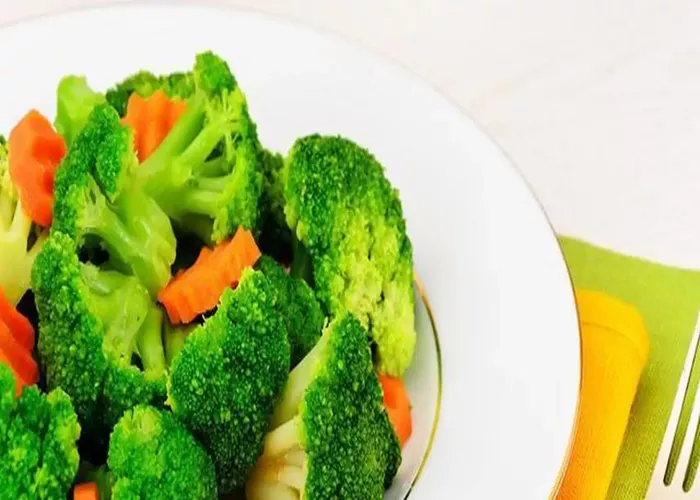Running is a popular cardiovascular exercise that helps improve endurance, burn calories, and boost overall fitness. However, if your goal is to build muscle, nutrition plays a crucial role, especially after a run. What you eat post-workout can significantly impact muscle growth, recovery, and overall performance. Here’s a comprehensive guide on what to eat after running to build muscle.
Understanding Muscle Building and Nutrition
Before diving into the specifics of what to eat, it’s essential to understand the basics of muscle building and nutrition. Muscle growth occurs when your muscles are subjected to stress, such as during weightlifting or running. This stress causes micro-tears in the muscle fibers, which then repair and grow back stronger. Proper nutrition provides the necessary building blocks for this repair and growth process.
The Role of Protein
Protein is the most critical nutrient for muscle growth. It’s the main structural component of muscles and is essential for repairing and building tissues. After a run, your muscles need protein to help them recover and grow.
Popular Sources of Protein
Eggs: Eggs are a high-quality protein source that’s easily digestible. They also contain essential amino acids that support muscle growth.
Lean Meats: Chicken, turkey, and lean beef are excellent sources of protein. They also provide iron, which is important for oxygen production during workouts.
Seafood: Fish like salmon, tuna, and sardines are rich in omega-3 fatty acids, which are beneficial for reducing inflammation and speeding up recovery. They also provide high-quality protein.
Dairy Products: Greek yogurt, cottage cheese, and milk are great post-workout options. They’re high in protein and contain carbohydrates, which help replenish energy stores.
Plant-Based Proteins: Tofu, tempeh, beans, lentils, and peanut butter are excellent sources of protein for those who follow a plant-based diet.
The Importance of Carbohydrates
Carbohydrates are also essential for muscle growth. They provide the energy needed for intense workouts and help replenish glycogen stores in the muscles. After a run, consuming carbohydrates can help speed up recovery and reduce muscle soreness.
Popular Sources of Carbohydrates
Fruits: Bananas, apples, and berries are great post-workout snacks. They provide natural sugars that quickly replenish energy levels.
Whole Grains: Oatmeal, brown rice, and quinoa are excellent sources of complex carbohydrates. They provide sustained energy and help keep blood sugar levels stable.
Vegetables: Carrots, broccoli, and sweet potatoes are rich in vitamins, minerals, and antioxidants that support muscle growth and recovery.
Hydration and Electrolytes
Running can cause significant fluid loss, so staying hydrated is crucial. Water is the best choice for hydration, but sports drinks can also be beneficial if you’re engaging in longer or more intense workouts. Sports drinks contain carbohydrates and electrolytes, which help replenish energy stores and maintain fluid balance.
The Ideal Post-Run Meal
Now that you understand the importance of protein, carbohydrates, and hydration, let’s look at an ideal post-run meal. The perfect meal should be balanced, providing a mix of protein, carbohydrates, and healthy fats. It should also be easy to digest and provide quick nutrition for recovery.
Grilled Chicken Salad: A salad with grilled chicken, mixed greens, cherry tomatoes, cucumbers, and a vinaigrette dressing. This meal provides a mix of protein, healthy fats, and carbohydrates.
Greek Yogurt and Berries: A bowl of Greek yogurt topped with fresh berries, a drizzle of honey, and a sprinkle of chia seeds. This snack is high in protein, antioxidants, and healthy fats.
Oatmeal with Banana and Almond Butter: A bowl of oatmeal topped with sliced banana, almond butter, and a splash of almond milk. This meal provides sustained energy, protein, and healthy fats.
Smoothie: A smoothie made with spinach, banana, Greek yogurt, almond milk, and a scoop of protein powder. This drink is packed with nutrients and easy to digest.
Timing is Crucial
The timing of your post-run meal is also important. Eating within 30 minutes to an hour after a run can help maximize muscle growth and recovery. This window is known as the “anabolic window,” during which your muscles are more sensitive to nutrients.
Avoid These Foods
While some foods can help build muscle, others can hinder your progress. Avoid processed foods, sugary snacks, and excessive amounts of saturated fats. These foods can cause inflammation, slow down recovery, and lead to unwanted weight gain.
Additional Tips for Muscle Growth
Eat at Regular Intervals: Eating smaller meals or snacks every 3-4 hours can help keep your metabolism revved up and provide a steady supply of nutrients for muscle growth.
Get Enough Sleep: Sleep is crucial for muscle growth and recovery. Aim for 7-9 hours of quality sleep per night.
Lift Weights: While running is great for cardiovascular health, it’s not the best exercise for building muscle. Incorporate weightlifting or resistance training into your routine to stimulate muscle growth.
Listen to Your Body: Pay attention to how your body feels after eating certain foods. Some people may tolerate dairy or gluten better than others. Experiment with different foods to find what works best for you.
Conclusion
Building muscle after running requires a combination of proper nutrition, hydration, and rest. By consuming a balanced meal rich in protein, carbohydrates, and healthy fats within 30 minutes to an hour after your run, you can maximize muscle growth and recovery. Avoid processed foods, sugary snacks, and excessive amounts of saturated fats. Incorporate weightlifting or resistance training into your routine, and make sure to get enough sleep and eat at regular intervals. With these tips, you’ll be well on your way to building strong, lean muscle.
Related topic:


